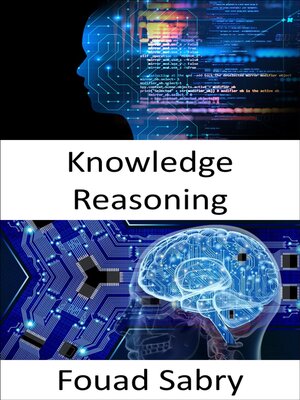
Sign up to save your library
With an OverDrive account, you can save your favorite libraries for at-a-glance information about availability. Find out more about OverDrive accounts.
Find this title in Libby, the library reading app by OverDrive.



Search for a digital library with this title
Title found at these libraries:
| Library Name | Distance |
|---|---|
| Loading... |
What Is Knowledge Reasoning
Knowledge representation and reasoning is a subfield of artificial intelligence (AI) that is devoted to the challenge of describing information about the world in a format that a computer system can use to solve complex problems, such as diagnosing a medical condition or having a conversation in a natural language. Examples of complex problems that can be solved by knowledge representation and reasoning include diagnosing a medical condition and having a conversation in a natural language. In order to construct formalisms that will make it easier to design and build complicated systems, knowledge representation combines discoveries from the field of psychology regarding how humans solve issues and represent knowledge. The application of rules and the interactions between sets and subsets are two examples of the forms of reasoning that can be automated with the help of knowledge representation and reasoning, which also incorporates results from logic.
How You Will Benefit
(I) Insights, and validations about the following topics:
Chapter 1: Knowledge representation and reasoning
Chapter 2: Knowledge management
Chapter 3: Semantic technology
Chapter 4: Knowledge graph
Chapter 5: Logico-linguistic modeling
Chapter 6: Conceptual graph
Chapter 7: Commonsense knowledge (artificial intelligence)
Chapter 8: Ontology engineering
Chapter 9: Knowledge-based systems
Chapter 10: Functional completeness
(II) Answering the public top questions about knowledge reasoning.
(III) Real world examples for the usage of knowledge reasoning in many fields.
(IV) 17 appendices to explain, briefly, 266 emerging technologies in each industry to have 360-degree full understanding of knowledge reasoning' technologies.
Who This Book Is For
Professionals, undergraduate and graduate students, enthusiasts, hobbyists, and those who want to go beyond basic knowledge or information for any kind of knowledge reasoning.







